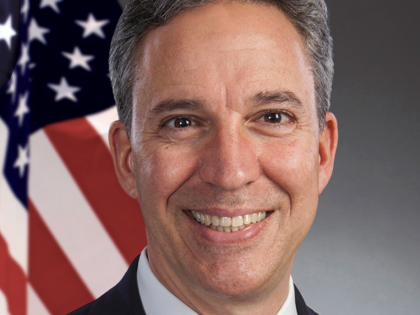
Senator Martins Attends Senate Hearing on SAT Cheating
Jack M. Martins
October 28, 2011
-
ISSUE:
- Continuing Education

The New York State Senate Committee on Higher Education, chaired by Senator Ken LaValle, held a hearing at Farmingdale State College surrounding the recent incidents of alleged cheating involving six past or current Great Neck North High School students accused of paying a former student to take the SAT for them.
One common theme among the Senators and those who testified is that cheating creates an unlevel playing field for a test that may well determine what college a student attends. Among those testifying was Great Neck North Principal Bernard Kaplan, who correctly pointed out that none of the alleged cheating incidents occurred in Great Neck North and Great Neck South High Schools, the two schools in the Great Neck School District that serve as testing centers for the test.
In fact, Great Neck School officials were the ones that alerted those who administer the test about their suspicions regarding possible cheating. Senator Jack M. Martins, who attended the hearing and represents the Great Neck area as part of the Seventh Senate District, complimented the integrity of the Great Neck School District officials who raised the red flag when it came to suspicions concerning cheating.
The SAT is administered by College Board and Education Testing Service (ETS), who establish certain procedures for students to take the test. Under current procedures, students can register online to take the test at any testing center in the country. They then simply have to bring an identification card to the testing center to take the test. Acceptable forms of identification include a student Id.
Mr. Kaplan testified that the testing security put in place by ETS “grossly inadequate,” saying that it is too easy to cheat and too hard to get caught. Mr. Kaplan suggesting, in the case of Great Neck, allowing the Great Neck School District to administer the test to its own students in their home schools, where their identities are already known by proctors at the testing location. Proctors are chosen by the school districts who supply testing centers, but paid by College Board.
Mr. Kaplan also noted that is it easily for someone desiring to cheat to make up a school ID and then take it to a testing center where the student is not known.
College Board President Gaston Caperton, the former Governor of West Virginia, testified that College Board was “deeply disturbed by the cases of test taker impersonation.” According to Caperton, College Board has begun providing additional, enhanced training, messaging and information for all test center supervisors that focuses on test security before, during and after the test administration. Mr. Caperton also noted that College Board has retained Freeh Group International Solutions, LLC, a firm founded by former FBI director and federal judge Louis J. Freeh, to analyze security measures.
Still, some of the speakers who testified at the Senate hearing made suggestions that can be immediately implemented without any significant costs. Oceanside School District Superintendent, Dr. Herb Brown, who also serves as president of the Nassau County Council of School Superintendents, also suggested having students take the SAT at their home schools where their identities are known. “Currently, registration [for the test] with the College Board is on a first come, first served basis and once the seats for students in that school fills up, students are directed to an alternate second choice high school. Keeping students at their home high school as much as possible would help increase security,” Dr. Brown said.
In addition, Dr. Brown suggested, that if students have to take the SAT in centers outside of their home school district, the home school district should provide the testing center with a photo of the student through their student management system as confirmation of their identification.
Senator Martins complimented the Great Neck School District for suggesting ways to make the testing process more secure during difficult circumstances. “I urge College Board and ETS to implement some of the suggestions we heard during the hearing. It is important that students have a level playing field for this test. Those students who practice and prepare for the SAT and take the test honestly and truthfully deserve a fair process when they apply to colleges,” Senator Martins said.
Share this Article or Press Release
Newsroom
Go to NewsroomSenator Martins' Toy Drive 2025
November 10, 2025

Fill a Backpack Program
June 10, 2025


